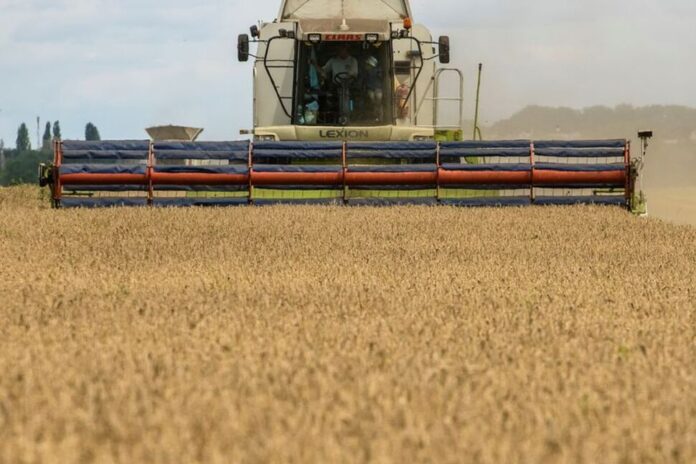Following in the steps of Poland and Hungary, Bulgaria is also preparing to ban the import of Ukrainian grain, Agriculture Minister Yavor Gechev announced on Sunday, according to Euractiv.
Meanwhile, a European Commission spokesperson criticised Warsaw and Budapest for breaking the EU line describing their move as “unacceptable”.
“Bulgarian interests must also be preserved. Moreover, when two EU countries react in this way, if we do not react similarly, the accumulations (of Ukrainian grain) on Bulgarian territory may become even larger, so we are working (on the issue),” Gechev said.
On Monday, Geshev will receive information on the legal basis Poland and Hungary used to ban the import of grain and some basic foods from Ukraine.
“We are working in this direction (to ban imports from Ukraine). I guess we will talk to the president on Tuesday, who directly has commitments in this situation, so it is a matter of time (to ban imports),” the minister added.
Bulgaria, governed by a caretaker government appointed by President Rumen Radev, viewed by some as pro-Russian, already requested a reaction from the European Commission on importing Ukrainian grain in September.
Just before the parliamentary elections on 2 April, Bulgarian grain producers staged three-day protests demanding a ban on imports from Ukraine. Agriculture Minister Yavor Gechev enthusiastically supported their protest and even got on one of the tractors that blocked traffic on the Danube bridge between Bulgaria and Romania.
For allowing Ukrainian grain and food products to pass through its territory, Bulgaria has received €16 million in compensation. The country has asked for another 100 million leva (€51 million) in compensation even though Bulgarian grain producers receive hundreds of millions of euros in direct EU subsidies for the land they cultivate.
Earlier on Saturday, Poland and Hungary decided to ban grain and some food imports from Ukraine following intense pressure from their own agricultural producers.
Particularly, Prime Minister Mateusz Morawiecki and the leader of the ruling Law and Justice (PiS, ECR) party, Jarosław Kaczyński, announced on Saturday bans on grain and other food imports, including fruit, vegetables, and poultry from Ukraine. Hungary announced a similar ban.
The move of Poland and Hungary was made despite an agreement on 15 April with another four countries (Bulgaria, the Czech Republic, Romania and Slovakia) to act together over the problem of low Ukrainian grain prices.
Meanwhile, the European Commission reacted negatively on Saturday, saying the two countries breached the EU trade policy.
“We are aware of Poland and Hungary’s announcements regarding the ban on imports of grain and other agricultural products from Ukraine,” a Commission spokesperson said in a statement.
“In this context, it is important to underline that trade policy is of EU exclusive competence and, therefore, unilateral actions are not acceptable,” she added.
After the EU established its Solidarity Lanes to facilitate imports from war-torn Ukraine, large quantities of cheaper and sometimes less qualitative Ukrainian grain ended up staying in Central European states, including Poland, Romania, Hungary and Bulgaria, due to logistical bottlenecks, hitting prices and sales for local farmers.
Polish and Ukrainian ministers will meet to discuss the issue in Poland on Monday.


